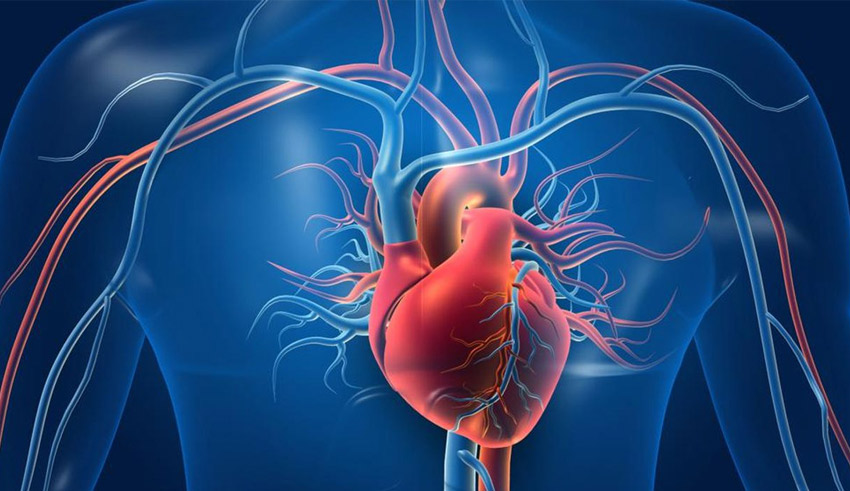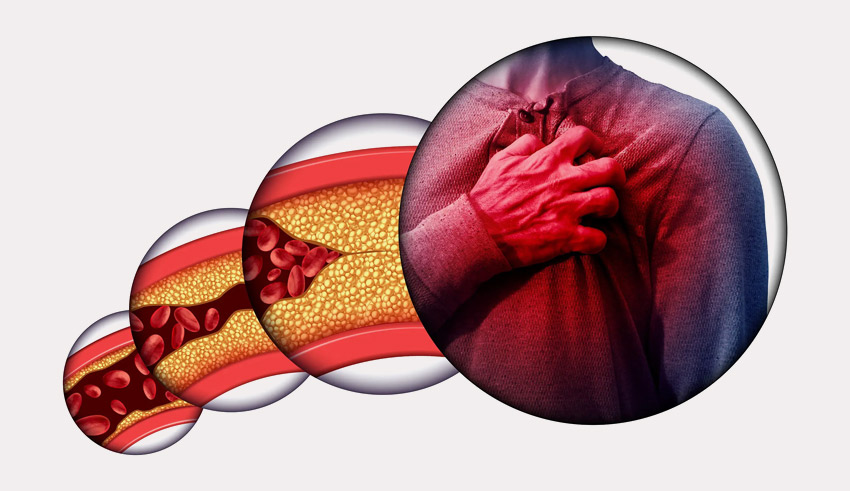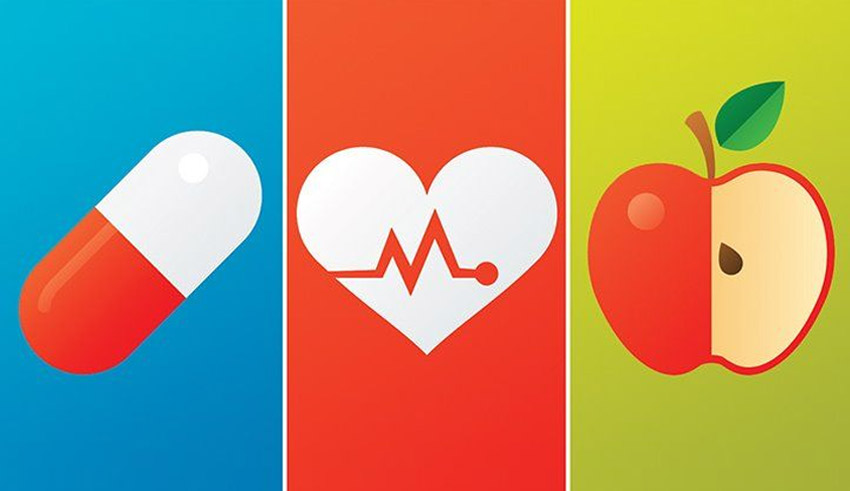Active lifestyle and nutritious diet is pivotal when it comes to cardiovascular diseases. Frequent intake of junk food has given rise to various illnesses such as obesity, cardiovascular diseases, high blood pressure & diabetes. Not only nutritionists and dieticians but doctors in general recommend organic diet rich in fruits, vegetables and dairy products along with regular exercise to combat and avoid all these diseases. In particular, cardiovascular experts highly recommend an active lifestyle to evade interventional cardiology or non-invasive procedures.
One of the best cardiologists in NYC, such as Asim Hameedi, MD, believe that a healthy diet plays a significant role in battling deadly cardiovascular diseases.
What is cardiovascular disease?
A cardiovascular disease is usually associated with the escalation of fatty deposits in the arteries (atherosclerosis) which leads to enhanced risk of blood clots. A rise in saturated fatty acids and trans fats can increase the risk of coronary artery diseases.
Cardiovascular diseases can also be caused due to damage in artery organs, including the brain, heart, and kidneys. A thrombus is formed within the blood vessels due to high cholesterol levels, and triglycerides.
Cardiovascular diseases mostly activate among patients of the refractory hypertensive state. If not treated timely, these diseases not only decrease life expectancy but can also be malignant in some situations.
Previously, interventional cardiology involved tube insertion procedures for diagnosing heart issues. However, the rise of advanced research methodologies has normalized non-invasive cardiology as a standard for diagnosing and treating cardiovascular diseases.

Causes of cardiovascular diseases:
There are numerous causes for cardiovascular diseases, including poor nutritional intake and genetic deviations. Oftentimes, heart-related issues occur due to poor lifestyle selections and lack of physical activity, which optimally causes several cardiovascular diseases. This is exactly why it is important to monitor your heart’s health regularly and know what to look out for.
For decades, cardiologists have focused on 3 main causes of coronary heart diseases and have emphasized on a healthy lifestyle to combat them. Cardiovascular diseases are potentially caused by the following three conditions.
- Obesity:
Generally, the most common cause associated with cardiovascular diseases is obesity. After crossing a certain weight limit, further raise in a human body weight increases CVD risk, which ultimately impacts hemodynamic and modifies heart structure. Over the years, science has constantly proven that excess body weight improves blood pressure, which gets uncontrollable if ignored for a long time. In the USA alone in 2020, a 42% rise in obesity was reported, majority of it attributed to unhealthy eating habits and a sedentary lifestyle.
- Genetic abnormalities:
Besides obesity, Genetic abnormalities can also be a root cause of heart diseases. Genetic factors play a significant role in increasing blood pressure, and other heart-related issues. However, the research implies that patients with a family medical history are more likely to be exposed to the same diseases, and it is because they share the same environment and bloodline. Unfortunately, the risk for such fatal diseases increases even more, when there’s a disastrous blend of heredity and unhealthy lifestyle choice, including, smoking, intake of alcohol, and poor nutritional ingestion.
- Diabetes mellitus:
Cardiovascular diseases are a threshold that mainly prevails among patients suffering from diabetes mellitus. Although diabetes is a disease itself, it becomes a cause for several other health issues as well and cardiovascular diseases are surely one of them. Luckily, healthy nutritional meals play a pivotal role in shielding diabetic patients from heart diseases. All forms of diabetes are specified by chronic hyperglycemia and the development of diabetic macro-vascular disease impacting the coronary arteries that supply blood to the heart. Diabetes mellitus is a highly common disease, with an associated rise in cardiovascular mortality. However, the advancement in technical success for non-invasive cardiology methods has led to a significant way for recovery among patients with Diabetes mellitus. In some cases, DM represents a complicated milieu for controlling cardiovascular diseases.

How to Control Cardiovascular Diseases
A healthy lifestyle is of pivotal importance, especially when you know that it’ll keep you safe from adverse medical conditions, so it would be wise to make slight tweaks to your diet. Cardiologists highly recommend the consumption of a healthy diet to prevent cardiovascular diseases. For a one to one consultation with one of the best cardiologist in NYC, you can visit Asim Hameedi, MD.
A diet rich in proteins, minerals and other important nutrients is of extreme importance to lead a healthy lifestyle. Unhygienic foods can precede your body towards heart disease risk. While altering your diet might be challenging, especially if you’re addicted to junk food for years, it is not all that difficult either. Cardiovascular health experts constantly provide basic nutritional knowledge promoting a sustainable pattern of healthful diet and drinks for the prevention of cardiovascular disease for both healthy individuals and the ones with higher risks. Here are a few general dietary recommendations for you in order to counter cardiovascular diseases.
- Diet portion Controlling:
How much food you intake regularly is as significant as what you eat. Overfilling your stomach and showing obscurity until you feel stuffed means adding surplus calories into your body, and this eating pattern is tied to an increased risk of heart disease. As mentioned earlier, excess calories can lead to obesity which provides room for cardiovascular diseases.
Fortunately, portion control prevents you from overeating and keeps you healthy in every possible way. Controlling diet is essential because it allows you to limit calories you’re presumably consuming. In this way, you’re eating according to your body’s preferences instead of mindlessly overindulging. Before implementing this strategy, consider the following
- Get a small-sized bowl and avoid refilling it after finishing a meal.
- Intake more veggies and fruits and avoid overeating chicken.
- Savor less meat and don’t forget to remove the hardened fat before cooking it.
If the food isn’t apportioned appropriately, it potentially promotes worsening heart disease.
- Consume more vegetables and fruits:
Vitamins and minerals are a significant part of a healthy meal, and what if you find both these essential nutrients in a naturally appetizing meal? Yes, you guessed it right; we’re referring to veggies and fruits. Almost every individual loves munching on them as they are naturally grown snacks full of vitamins, minerals, dietary fibers, and whatnot.
Similar to other plant-based foods, veggies and fruits help prevent numerous cardiovascular diseases. Most of them are particularly rich in beta-carotene, which is a direct form of vitamin A. These serve as antioxidants in the human body and guard against atherosclerosis by reducing the occurrence of the plague from cholesterol in the arteries. Also, consuming these two in your daily meal cut back on higher-calorie diets such as cheese, meat, and junk foods.
For more ease, cut the veggies into small cubes and refrigerate them so you can utilize them later as quick snacks. Next, keep fruits in a considerable-sized bowl on the kitchen counter so that you’ll remember munching on them. Maintain a healthy recipe plan that must include vegetables and fruits as a main course ingredient.
- Opt for whole grains:
Whole grains are a healthy source of nutrients that helps in maintaining an active immune system. They also contain dietary fibers that control cholesterol levels and lower the risk of cardiovascular diseases. After any interventional cardiology or non-invasive cardiology procedure, doctors suggest consuming whole grains as they make an excellent staple meal to be included in a cardiac patient’s diet. While following this diet, the patient is advised to focus more on plant-based food items that are low in saturated fat. The presence of fibers in whole grains regulates your cholesterol significantly, which ultimately improves your heart health.
Besides antioxidant properties, whole grains might also decrease the risk of heart diseases through antithrombotic and reduced platelet-aggregating effects. Numerous physicians have suggested that whole grains serve an important part in the primary and secondary prevention of cardiovascular diseases through changes in coagulation. Particularly, a diet that’s rich in fiber and low in fat favorably influences cardiovascular disease risk.
- Limiting fat intake:
In case you regularly intake fats, opt for foods rich in monounsaturated fats like olive oil and canola oil. Polyunsaturated fats also make a good source of proteins and surely a perfect one for preventing cardiovascular diseases. However, all types of fats are high in calories, so moderation is essential. Limiting the amount of saturated fat you consume regularly is a significant step towards reducing the blood cholesterol level and diminishes the risk of coronary heart diseases.
Preparing meals in a heart-healthy way includes identifying hidden fat and cholesterol sources in food items. By simply substituting vinegar and olive oil in place of cheesy and creamy salad dressings, or utilizing various other ways for reducing saturated fat and cholesterol in daily intake can surely keep a healthy person away from every type of heart disease.
The easiest way of adding healthy fat and fiber to your daily diet is to include ground flaxseeds. These are the small brown seeds that contain higher levels of fiber and omega-3 fatty acids. Studies have shown how flaxseeds reduce unhealthy cholesterol levels in some individuals.
- Avoid consuming excess salt:
Everyone must be aware of the adverse effects of excessive amounts of salt (sodium) in meals. Over the years, numerous interventional cardiology research papers have implied the association of high sodium intakes with higher blood pressure, which at last leads to increased risk of cardiovascular disease. Excess intake of salt is linked to water retention, and both sodium consumption and higher blood pressure are a major threat for developing heart failure, and for causing mishaps for those with existing heart condition. Therefore, reducing the salt intake in regular diet is quite important to decrease the risk of adverse cardiovascular consequences.
- Avoid consuming excess Caffeine:
Caffeine is a strong substance that’s present in coffee, tea, soft drinks, and dry fruits. Numerous studies have shown the direct association between caffeine and coronary heart diseases, but the results are conflicting. However, limiting the amount of caffeine consumption is a recommended choice. The basic reason to avoid caffeine in excess is that the role of caffeine in each human body differs. Many individuals complain of having an enhanced level of blood pressure after having a mug of coffee, while others have no effect at all. Moreover, caffeine may attenuate the ordinary psychological mechanisms that help improve myocardial blood flow that appears during the increased demand for physical activity.
Heart patients are constantly advised to avoid consuming excess caffeine because it primarily triggers kidneys, increasing urination, which encourages dehydration. Besides this, if any caffeine-addicted cardiac patient goes through surgery, cardiac catheterization procedures become necessary.
- Rectifying drinking habits:
Heart health embodies a reflection of a person’s lifestyle and diet. Every cardiologist recommends savoring fruits and veggies juices in your meal because it is significant for maintaining a productive lifestyle. Undoubtedly, raw juices offer a great avenue to every heart patient and the ones trying to improve their comprehensive health. There’s no single tonic for the improvement of heart and blood vessel health, but a glass full of healthy juice leads to providing you with a medically active cardiovascular system.
Beetroot juice occupies the stage for the best juices for a healthy heart. The higher nitrate content of beet juice precisely widens the horizon to blood vessels and research suggests that blood pressure gets lowered within one hour of ingestion. Instead of beginning your day with orange juice, opt for a glass of beetroot juice.
Cardiologists always encouraged supplementing your drinks with some natural protein, such as legumes, and also experts recommend choosing foods that are lower in calories but rich in proteins. However, when it comes to devouring alcohol, the situation might be challenging for patients with cardiovascular disease. Multiple studies show different outcomes for alcohol ingestion. Through both interventional cardiology, and non-invasive cardiology procedures, different facts have been determined, and these facts can utterly change the perspective of acquiring the situation. Everything looks good in moderation and same goes with alcohol consumption.

How to control the spread of cardiovascular disease?
If the patient is negligent about his treatment, possibilities say that the medical condition might escalate, which would result in a cardiovascular arrhythmia or a stroke. For this purpose, physical therapies and medications play a significant role for heart patients so that their situation can be easily controlled and resisted from reaching a point of no return.
If you’re seeking consultations in NYC, Asim Hameedi MD, has frequently evaluated the importance of medicinal care and lifestyle modifications for dealing with such excruciating conditions, including cardiovascular diseases.
Unfortunately, there’s no permanent fix for heart-related diseases, and the person with an existing cardiovascular condition has to deal with it forever. However, even after being diagnosed with any disease, they can follow non-invasive cardiology and interventional cardiology methods and a healthy diet to keep their disease under wraps.
When cardiologists suggest preventing cardiovascular diseases, they usually evaluate three stages of prevention, which are as follows.
- Primary prevention:
Primary prevention strives to keep an individual away from frightening threats of heart diseases, including a heart attack or stroke. This prevention is usually associated with heart patients who are already having the symptoms of cardiovascular issues such as shooting blood pressure and escalated cholesterol.
- Secondary prevention:
These efforts are initiated after someone has had a heart attack and currently undergoing bypass surgery. Fortunately, heart attack treatment begins with medication immediately and following a nutritional diet with tons of vitamins and proteins.
- Primordial prevention:
Primordial prevention involves thwarting inflammation, atherosclerosis, controlling blood pressure, obesity, and ultimately cardiovascular diseases. Once rarely researched, primordial prevention is now the cornerstone of multiple cardiac diagnostic departments around the world, and the name says it all. The sooner you’ll start practicing this procedure; it will shield you from every existing heart disease out there.
Cardiovascular diseases are a leading cause of numerous deaths globally. In the USA, over half a million adults succumb to various cardiovascular conditions each year. It is important to learn about your heart’s health to prevent it from deadly cardiovascular diseases. By any chance, if you’re exposed to a heart-related medical condition, there’s several ways of realizing the seriousness of your state and seeking to guard precautions beforehand.
With the advancement of technology, procedures like cardiac catheterization, and diagnostic & treatment methods like interventional cardiology and non-invasive cardiology, there’s a great possibility of retreating to a healthy lifestyle.
Heart diseases are incurable, but easily manageable through proper diet plans and scientific medications. Not to mention, seeking out medical experts should be everyone’s priority, and surely a beneficial step in the long haul. Medical professionals strictly prohibit self-medication and encourage immediate consultation with physicians in case of any health discomfort. What’s even more important is altogether avoiding medical conditions by adapting to a healthy & active lifestyle.
